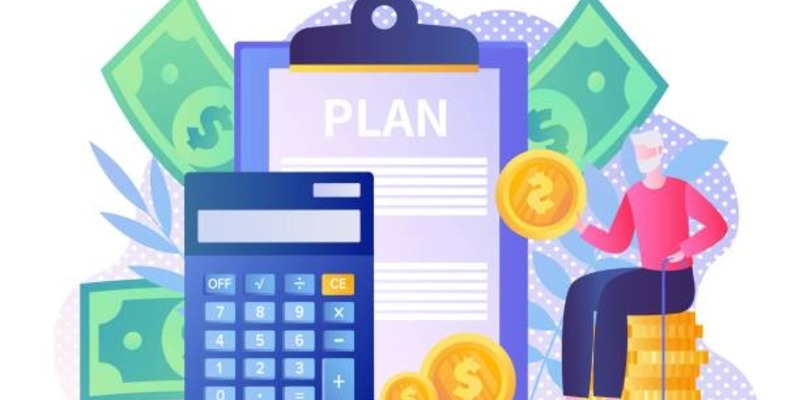The boundaries of artificial intelligence protection
Dec 10, 2023 By Si Gyeongmin
1. Support the theory that competition makes digital perfection
From a policy perspective, the appeal of artificial intelligence assistants lies in their potential to reduce barriers to competition. This can save consumers a lot of time and money, as well as boost the economy, so it would make sense for policymakers to support laws that strengthen artificial intelligence assistants.
(1) Policies to promote perfect competition
The research of behavioral economics puts forward a long-standing hypothesis: rationality. Traditional legal and economic theories assume that consumers will make rational decisions, which generally refer to decisions that can promote consumer interests in the context of existing choices. Psychologists have begun to show that people tend to estimate poorly, are overconfident in their own decisions, and face difficulties even when dealing with basic numerical decisions. These different decision-making flaws are not only inconsistent with the best interests of the decision-maker, but also limit the improvement of transaction efficiency. Therefore, many scholars use the law as a means to reduce the harm caused by irrationality.

(2) Artificial intelligence assistants as agents of perfect competition
Although the prospect of moving towards perfect competition has inspired decades of policy reforms, the results have been disappointing. Although prices and products can be seen at the click of a button, consumers often cannot choose the best price. Although information technology has reduced certain transaction costs and information asymmetry, technological innovation has enhanced the company's ability to profit from conversion costs, information asymmetry, and decision-making bias. Therefore, consumers tend to pay more than when the market is close to perfect competition.
Artificial intelligence assistants will actively protect consumers to ensure that consumers are not misled by intermediaries. When the unfavorable factors are controlled, there is huge potential for consumer welfare and efficiency improvement. The current dominant legal model, giving priority to reducing transaction costs, will theoretically support legal reforms, making advances in artificial intelligence possible.
2. The battlefield of law and market
The laws of automated trading are new, evolving, and untheorized. The extent to which the intellectual framework that supports artificial intelligence will translate into real-world policies is uncertain. Major US policymakers have expressed support for artificial intelligence assistants, but the speed of advancing the law has been slower than their counterparts in other countries. The laws that control business behavior will have a particularly large impact on the ability of artificial intelligence assistants to reduce transaction costs. This is divided into four areas: data blocking, exit prevention, confusion, and collusion.

(1) Data blocking
For artificial intelligence assistants, access to data is essential to help consumers shop, but sellers can prevent digital intermediaries from obtaining data. The law can help in different ways, depending on whether the data involved is product-based or customer-based.
In the information age, companies can block market information that publicly exists on the Internet. In order to give the latest advice, the artificial intelligence assistant needs to monitor price and product changes on various websites. This process is called "grabbing."
Customer-based data is essential for personalized recommendations. Artificial intelligence assistants prompt consumers to provide them with online accounts. For example, millions of customers of Citibank, Bank of America, and JPMorgan Chase have provided artificial intelligence financial assistants with passwords so that automated robots can log in and collect bank transaction records.

(2) Exit prevention
Companies may also weaken artificial intelligence assistants because they will allow consumers to choose another company. However, if the market cannot provide low-priced alternatives, high termination fees will prevent people from rationally abandoning bad contracts. Courts in some parts of the United States have eliminated excessively high mobile phone termination fees, and the Federal Communications Commission has finally passed a rule to combat this type of behavior.
(3) Confusion
Many sellers may adopt misleading strategies similar to those of consumers to deal with artificial intelligence assistants. They will try to manipulate artificial intelligence algorithms instead of manipulating the human brain. Another related technology is the continuous introduction of new products. These new products have few improvements, but make people feel that the previous version is not as good as the current one.
It is not clear how effective these strategies will be in consumer markets that rely on artificial intelligence assistants. The more businesses make their products difficult to compare, the more consumers will realize that they need the help of artificial intelligence assistants. In other words, companies try to cause consumers to misunderstand artificial intelligence by making the market more chaotic, which may accelerate consumers' dependence on artificial intelligence assistants.

(4) Collusion
More specifically, by limiting collusion options, sellers can limit the ability of artificial intelligence assistants to help consumers. Scholars have put forward better suggestions to solve new forms of collusion of seller algorithms. But competition law has been slow to adapt to the digital age. In addition to the general lag of the law, the anti-monopoly authorities are particularly reluctant to intervene in emerging industries, fearing that it will undermine innovation.
Existing companies may use some strategic measures to hinder the benefits of artificial intelligence assistants for consumers. Artificial intelligence controls the market entirely out of consumers' desire for convenience, but in fact, it has not benefited consumers, nor has it pushed the market into a basic economic model of perfect competition. But under the appropriate legal framework, artificial intelligence assistants can significantly reduce transaction costs by eliminating search and conversion costs in some cases.
Although the law has not yet been fully resolved, influential political and technological forces can allow artificial intelligence to significantly reduce transaction costs in many markets, thereby bringing huge benefits to society. By protecting artificial intelligence, these beneficial results and the path to them will become clearer.

Timing Your Tax-Loss Harvesting: A Guide to Smart Investing

Navigating Artificial Intelligence: Lessons from the Financial Sector

The boundaries of artificial intelligence protection

What Is An Imputed Cost? Everything You Need To Know

Roofstock Review 2024: Real Estate Investment Made Easier

Securing Contractor Insurance: A Step-by-Step Procurement Guide

Difference Between Hedge Funds and Mutual Funds

Deciding Between Savings Accounts and Bonds: What You Need to Know

Understanding the Transition: Credit Karma Tax Rebrands as Cash App Taxes

